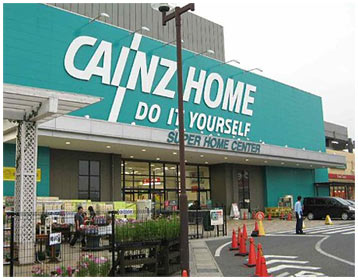The other day I called the hotel I usually stay at whenever I go to Tokyo — Hotel Mets Shibuya, if you happen to be looking for one — to make a reservation for next month. While on the phone with the front desk I’d gotten my credit card out, sure that they’d require me to give them the number with the understanding that the room would be charged if I failed to show up on the appointed evening. I was surprised, however, when the lady thanked me and told me they’d be waiting for me and did not take my card information down, hence there was no penalty if I had to cancel at the last minute. Another example of this “enlightened capitalism” is Cainz Home, the local “home center” (do-it-yourself superstore). When purchasing large items like lumber or furniture, the store will lend you a truck to take the items home with…for free. Even to a gaijin who didn’t have a proper driver’s license (this was back in the good old days when we were allowed to drive with an international driver’s license). There are many other examples of capitalism in Japan seemingly working in a kinder, gentler way than they might in other countries. I’ve been in discount stores in the U.S. that sell food well past its expiration dates, but this would be unthinkable in Japan…and on J-List, by the way, where all the snacks and food items we sell are guaranteed to be within the freshness date printed on the package when shipped. (I’m also regularly talked out of purchases I don’t need by store clerks who want to spare me from buying something stupid that I don’t really need, which always amazes me.)

I’m impressed with how often Japan’s brand of capitalism is “kind”















